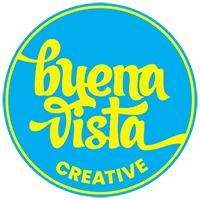Social media content creation is now an opportunity and a challenge. Brands are now posting more than ever, but only a few of them manage to spark genuine engagement. If your brand is worrying about ignored posts, then you’re not alone and certainly not powerless.
In this blog, we’ll be discussing how you can ace social media content creation to boost your brand’s visibility across multiple channels.

Why Your Social Media Content Isn’t Getting Engagement
Social media is becoming so saturated that simply showing up and posting regularly is no longer enough. According to Hootsuite’s 2025 Global Trends Report, an average user scrolls through over 300 feet of content daily. This means that if your post doesn’t stop the scroll, it might as well not exist.
So, what’s the main reason why businesses struggle to create engaging posts? It’s not due to a lack of effort; it’s a lack of strategy.
Most brands often prefer volume over value. But publishing daily without a clear content framework and hoping the quantity will eventually win the algorithm is the wrong approach. Algorithms are now dynamic, and they prioritize relevance, resonance, and originality above all else.
Here’s an explanation of what that means:
- Reposting trends or using generics won’t work anymore.
- Audiences can spot low-effort content instantly.
- Every platform rewards content that drives meaningful engagement.
The Importance of Effective Social Media Content Creation
Every business has the same goal: create content that earns attention and builds trust. So, it’s safe to say that content creation is no longer optional; it’s foundational.
Here’s why it matters:
1. Attention Drives Everything Else
Social media needs to be at the top of your marketing funnel. If people are not paying attention to your content, then they won’t visit your website. You’ll have a very short email list or product sales. So, engagement is the gateway to building deep connections and improving conversions.
2. Consistent Value Builds Authority
You become more than a brand when your audience can count on you to deliver useful or entertaining content. Being resourceful is what builds long-term following and generates business volume.
3. Social Media Fuels Sales (Even if Indirectly)
Social media has the power to influence purchases. Oftentimes, you don’t even have to run paid ads. If you can relate to your consumers, they will make purchases from organic posts that were shared or sent in DMs.
Learn More: Social media platforms
Core Elements of Engaging Content
The most successful content creators and brands build engagement intentionally. Your content needs to consistently reflect three key pillars: Relevance, Value, and Connection.
Let’s discuss them in detail.
Know Your Audience To Stay Relevant
If you don’t understand your audience, then you’ll just be speaking into a void. So, you need to start with these questions:
- What keeps your ideal customer up at night?
- What language and humor styles resonate with them?
- Where do they spend time online and why?
The more you align your messaging with their interests and pain points, the better. They are more likely to stop scrolling and pay attention to your content when you show you understand their feelings. Try to:
- Use Analytics: Insights show when your audience is active and what content gets saved or shared.
- Conduct Polls: Ask your audience directly via Instagram Stories or emails to learn what pains them.
- Listen Actively: Monitor every comment and DMs. You need to hear what your audience is saying.
Establish a Clear and Consistent Brand Voice
Consistency doesn’t mean monotony; it means reliability. Your audience needs to recognize your content instantly. Your brand voice needs to stand out in the way you speak and design. To get clarity and consistency, you need to ask yourself these questions:
- Is your tone conversational, professional, or empathetic?
- Do your visuals reflect your values?
- Would someone be able to recognize your post without seeing your logo?
Even as a solo creator, you need to establish brand voice guidelines to help build credibility and emotional connections.
Choose the Right Format for the Right Platform
Each platform has its own strengths and audience behaviors. So, here’s a quick breakdown of the right format for every major platform:
- Instagram: Best for Reels, carousels, and stories. Users love fast-scrolling, so you need eye-catching and emotional content.
- LinkedIn: Great for thought-leadership and educational posts. It’s a professional platform that has a B2B focused audience.
- TikTok: Ideal for short and trend-driven videos. Users love content that shows personality and humor.
- Facebook: Perfect for events and community. Most users prefer connection and bonding over fast-scrolling.
- YouTube: Ideal for tutorials and discussions. Most viewers come to learn and watch long-form content.
Strategies for Powerful Social Media Content Creation
Once you define the foundation, you need to implement strategies that stop scrolling. Here are some proven strategies:
Use the 70-20-10 Content Mix Rule
Your content’s success depends on how well you balance everything. Every post should have:
- 70% Value: Tips or stories that educate or entertain.
- 20% Community: Share content from partners or audience.
- 10% Promotional: Product launches or direct calls to action.
This mix makes it easier for you to remain helpful and relevant without sounding like a salesperson.
Lean Into Storytelling
People are no longer interested in features; they want relatable stories. So, every piece of content should answer one question: Why should your audience care?
Every post needs to showcase a message with a narrative. For example, instead of just saying “Our tool is fast,” you should show your tool solving a real problem because of that speed.
Repurpose High-Value Content
You don’t have to create new ideas every day. If you create a strong piece of content, you can turn it into a 5 or 10 micro-assess. These assets will help you repurpose content for every platform.
For example:
- A long-form YouTube Marketing video can be trimmed and reused as a reel and a blog snippet.
- A Q&A session on Instagram can become a scripted educational video for YouTube.
- A high-performing LinkedIn post can inspire a visual post for Facebook or Instagram.
Learn more about other web services
Prioritize Platform-Specific Content
Each platform favors specific formats and audience behaviors. So, you must prioritise platform-specific content to stay relevant:
For example:
- Keep YouTube videos structured with a clear hook and high retention value. You must also try to use the relevant keywords.
- Focus on short visual bursts for Instagram. Reels and carousels help deliver quick wins and inspirations.
- LinkedIn rewards long-form thought-leadership posts. They give actionable insights for a professional audience.
The goal is to tailor your message according to each platform. If you want to be successful, you need variety instead of copying and pasting the same content everywhere.
Conclusion
Social media content creation is no longer focused on flooding your feed or chasing trends. It’s about creating meaningful moments of connection that build trust over time. Creators and brands that are winning in 2025 aren’t just loud, they’re strategic. If you want to win, then you need to be more helpful and resourceful to your audience.
